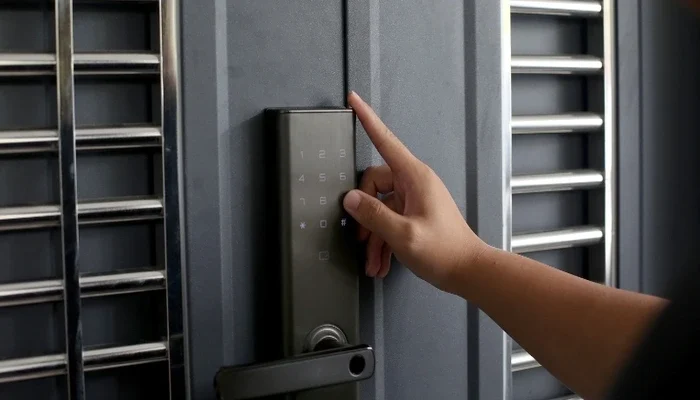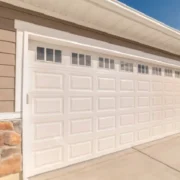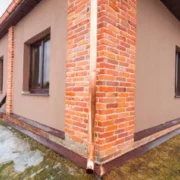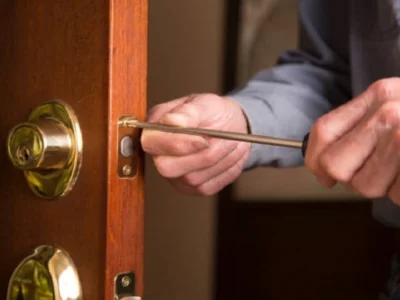Home protection has become very important to many people in today’s world, which changes so quickly. With advancements in technology, smart locks have emerged as a popular choice, offering features that traditional locks simply can’t match. But does that mean smart locks are automatically the better option? In this article, we’ll explore the key differences between smart locks and traditional locks, helping you make an informed decision about which option is best for your home’s security needs.
Traditional Locks: Time-Tested Security
Traditional locks have been around for centuries, evolving from basic mechanical systems to more sophisticated options like deadbolts and high-security locks. Their simplicity, affordability, and long-standing reliability have made them a staple in home security. They are mechanical devices that require a key to unlock and are usually made from durable materials such as steel or brass.
The Benefits of Traditional Locks
- Simplicity and Reliability
Traditional locks are known for their straightforward functionality. You insert a key, turn it, and the door locks or unlocks. Because they don’t rely on any electronic components, they are incredibly reliable. There’s no need to worry about dead batteries, software glitches, or connectivity issues. This reliability is particularly useful during emergencies when quick access is essential.
- Affordability
One of the major advantages of traditional locks is their affordability. They come in a wide range of prices, but even the high-security versions tend to be less expensive than smart locks. Homeowners who prioritize cost-efficiency might prefer the simplicity and lower cost of traditional locks, especially when installing multiple units throughout the home.
- Fewer Vulnerabilities
Traditional locks, especially when installed by a professional locksmith NYC, offer fewer entry points for potential hacking or tampering. A well-installed deadbolt can provide strong protection against forced entry and picking attempts. There’s also no worry about cyber threats or vulnerabilities that come with digital systems, making traditional locks a dependable option for those concerned about both physical and digital security.
- No Power Required
Because traditional locks operate purely mechanically, they don’t require electricity or batteries to function. This eliminates the risk of lockouts due to power failures or drained batteries, ensuring that your home is always secure.
The Drawbacks of Traditional Locks
While traditional locks are reliable, they aren’t perfect. Keys can be lost, and the locks themselves can be picked or bumped by skilled intruders. Additionally, they lack the convenience and remote access features that many modern homeowners desire. For those who travel frequently or want more control over their home’s security, a traditional lock might feel limiting.
Smart Locks: The Modern Solution
Smart locks have grown in popularity over the last few years, thanks to the rise of smart home systems. These locks use advanced technology, allowing homeowners to lock or unlock their doors using a smartphone app, voice commands, or even biometrics like fingerprints.
The Benefits of Smart Locks
- Convenience and Remote Access
One of the biggest selling points of smart locks is the ability to lock and unlock your door from anywhere in the world. Whether you’re at work, on vacation, or just downstairs on the couch, smart locks let you control access to your home via an app on your smartphone. This feature is especially helpful for families, as you can grant temporary access to house guests, maintenance workers, or even delivery personnel without needing to be present.
- Keyless Entry
Smart locks eliminate the need for physical keys, which can be a huge advantage for anyone prone to misplacing them. Instead, these locks often allow you to use a pin code, fingerprint, or smartphone to gain entry. This makes it nearly impossible for you to get locked out of your own home unless you forget your code or lose access to your smartphone.
- Integration with Smart Home Systems
A lot of smart locks can be connected to larger smart home networks. For instance, you can connect your lock to your security cameras, lighting systems, or voice assistants like Amazon Alexa or Google Assistant. This level of integration allows for automated routines, such as locking the door and turning off the lights when you leave the house.
- Activity Monitoring
Most smart locks come with built-in activity monitoring, which lets you see who is coming and going from your home. The app will provide a log of every time the door is locked or unlocked, so you’ll always know when someone enters or exits your home. For homeowners who want added peace of mind, especially when it comes to their kids or house guests, this feature can be invaluable.
The Drawbacks of Smart Locks
Despite the convenience, smart locks do have some downsides:
- Higher Cost
Smart locks tend to be more expensive than traditional locks, both in terms of initial cost and potential long-term maintenance. The high-tech features and sleek designs come with a premium price tag, making them a larger investment upfront.
- Battery Dependency
Smart locks rely on batteries to operate, which means that a drained battery could leave you locked out or unable to secure your home. Most smart locks will notify you when the battery is running low, but it’s still something homeowners need to monitor regularly.
- Potential for Hacking
While smart locks are designed with security in mind, no system is immune to hacking. Some experts have raised concerns about the vulnerabilities of smart locks, especially when they are connected to the internet. While reputable manufacturers include robust encryption to prevent unauthorized access, tech-savvy criminals may still attempt to exploit weaknesses in the system.
- Reliance on Technology
Like all smart devices, smart locks can be prone to glitches or connectivity issues. If your smartphone malfunctions, if there’s an issue with your Wi-Fi connection, or if the lock’s software experiences a bug, you could face difficulties accessing your home. Although these incidents are rare, they’re a potential drawback to consider.
Which is Better for Your Home: Smart Locks or Traditional Locks?
The decision between smart locks and traditional locks largely comes down to personal preference and lifestyle. Both options provide reliable security, but they cater to different needs.
If you value simplicity, affordability, and a time-tested approach, traditional locks might be the best fit. They offer solid security, and when installed by a skilled locksmith nyc, they can be difficult to bypass. Traditional locks are ideal for homeowners who prefer a low-maintenance option without the need for apps, batteries, or internet connections.
On the other hand, if you’re looking for convenience, modern features, and the ability to control your home’s security remotely, smart locks may be the better choice. For tech-savvy individuals or families who are frequently on the go, the added flexibility and integration with smart home systems can be a game-changer.
A Hybrid Approach
For many homeowners, the best option might not be to choose between smart locks and traditional locks, but rather to use a combination of both. Some security experts recommend installing smart locks on front and back doors for convenience, while using traditional deadbolts on secondary entrances or interior doors for added security. This way, you get the best of both worlds: the ease of use provided by smart locks and the reliable, no-fail functionality of traditional locks.
Conclusion
Ultimately, there’s no one-size-fits-all answer when it comes to choosing between smart locks and traditional locks. There are pros and cons to each one that are special. For those who prioritize simplicity and reliability, traditional locks remain an excellent choice. However, for homeowners looking for greater control, convenience, and integration with smart home systems, smart locks offer a glimpse into the future of home security.
Choice Home Warranty George Foreman in 2024










Comments